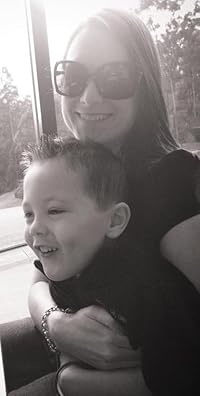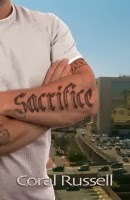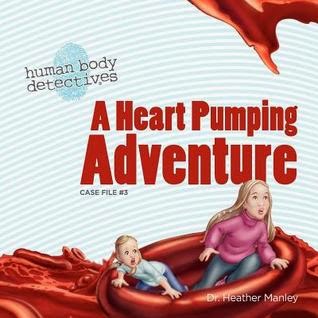HOW DO YOU WRITE – LAP TOP, PEN, PAPER, IN BED, AT A DESK?
I have to confess – I currently write with a laptop where it is supposed to be, i.e. on my lap. I find this is the least stressful way for me to write. Sitting on a sofa is how I can both relax and concentrate at the same time. I have written at a desk before but at the moment I don’t have one large enough to accommodate my laptop, my printer and all my research papers. So I find if I spread all my papers around me on the sofa and on the coffee table in front of me, I can see everything and pick out what I need with ease rather than shuffling a large pile of papers stacked up on a desk.
TELL US ABOUT YOUR NEW BOOK? WHAT’S IT ABOUT AND WHY DID YOU WRITE IT?
The origin of the book was way back in 1984 when I was commissioned to research a film about the “Profumo Affair”. After 12 months researching the story I realized I had far too much new material for simply a film. I knew I had the makings of an important book. And I knew I had a story, a very different story from the accepted story of the day. Retired police officers who had worked on the Stephen Ward investigation spoke to me for the first time. So did most of Ward’s surviving friends who had retreated into complete silence following the trial. Retired MI5 and FBI officers also agreed to talk to me, something they had never done before to anyone. From these more than 80 interviews I came to the conclusion that Stephen Ward had been framed - by the government of the day, the police force, the security service and the judiciary. The book that came out of this research was published 25 years ago under the title, “An Affair of State” and it became a number one best seller. This book, “How the English Establishment Framed Stephen Ward” is an updated version of that book, using material that my co-author and I obtained since the original publication in 1987.
IF YOU COULD LIVE ANYWHERE IN THE WORLD WHERE WOULD IT BE?
Being a born traveller I would probably never be happy in just one place. My choice of places to live would be a combination of Newfoundland, Costa Rica, the Philippines, the UK and Los Angeles. These are the places I love the best. I consider myself fortunate as currently I travel between three of them – Newfoundland, LA and Costa Rica. I have a house on the ocean in Newfoundland (my writing bolthole), a condo in LA (where I spend precious time with one of my daughters and my two grandchildren) and a stunning piece of property with an impressive waterfall in Costa Rica. I am still not entirely sure where I really belong. Maybe one day I will find out.
EVERY WRITER HAS THEIR OWN IDEA OF WHAT A SUCCESSFUL CAREER IN WRITING IS – WHAT DOES SUCCESS IN WRITING LOOK LIKE TO YOU?
“Success in writing” to many people looks like J.K. Rowling, without doubt. But that is only if we consider commercial success as being the main factor. However, I believe that critical success and a strong sense of personal achievement are equally valid as pointers of success. Someone who has written a book despite facing huge obstacles – disability, tragedy or threat, to name just three – would represent a far more significant success to me than someone who has authored a commercially successful book.
DID WRITING THIS BOOK TEACH YOU ANYTHING AND WHAT WAS IT?
The book is non-fiction. So I was interviewing real people - potentially hostile, suspicious or fearful people. This is because the majority of the major people I interviewed had refused to speak to any other writer or journalist in the 25 years following the Profumo Scandal and the trial of Stephen Ward. So how did I get them to talk? How did I get them to trust me? How did I get them to feel relaxed enough not only to talk to me but to view me as their friend and ally? I approached them very respectfully. I did not push them. I did not rush them. I did not harass them. I gave them time to consider my request. I talked to them very gently. I came to their homes, always on time, bearing gifts – a cake, some flowers, a box of chocolates, a bottle of wine, a packet of expensive coffee, depending on their tastes. Many of those I interviewed remain friends, even today. So the lesson I learnt was to be gentle, considerate, respectful and always grateful.
CAN YOU SHARE A LITTLE OF YOUR CURRENT WORK WITH US?
This piece was written while I was working with refugees with disabilities in the camps of Southern Azerbaijan. I am currently putting all my many articles together in a memoir:
THE RAILWAY CHILDREN OF SAATLI
by Caroline Kennedy
Through the heat haze reflecting off the carriage roofs, through the belching smoke from the nearby asphalt factory, through the dustclouds whipped up by the unrelenting winds, you can catch a fleeting sight of them. Like phantoms, blurred, pallid, vague silhouettes, now here, now there, wafting in and out from behind the ancient railway wagons. Nimble, agile, fleet of foot. One moment in sight, a wisp of smoke, a puff of soot, then gone. Unreachable. Untouchable.
But when the air clears, there they are again. Or are they ? Is it my imagination? Are they an illusion, a mirage ? Could the dwindling light, the shadows, the dustclouds be playing games with the wind, perhaps ?
But here they are, approaching me, seemingly hordes of them, though, in reality, probably far fewer. Closer now they come, grubby, barefooted
figures of young children, bare, fleshless arms outstretched towards me. Clothes ragged, hair matted, limbs encrusted by soot. But it’s their eyes that catch my attention. Not the normal eyes of children. These eyes are unresponsive, dulled by hunger, by lack of motivation, by boredom. They are lustreless, unflickering eyes of children, old beyond their years, some born, some growing up, all living on the railway lines of Saatli.
Home to these children are abandoned railway wagons, no more than corroded metal junk heaps, destined decades ago for the scrap merchant’s yard. Windowless, airless, dank. No ventilation, no light,
not even the winds penetrate these dark hovels. Life inside these improvised dwellings is lived in perpetual darkness. Stifling in summer when the brutal rays of the sun blister everything in their grip. Freezing in winter when the ill-fitting sliding doors offer no protection against the bitter, howling gales and the persistent snowstorms.
The only shade now - not trees, for there are none here - but the back-breaking space beneath the wagons. Here the weak ones sit, day after day, singly and in groups, hunched up, cramped, listless, pitiful. The lack of animation evident in their dispirited expressions, their vacant
stares and their inability to brush away the invading army of flies which voraciously seek out their eyes, their mouths and any available open sore on their bent and feeble bodies.
Under a white shroud, like a mummified corpse, lies a woman the impoverished medical system in this country has either forgotten, neglected or, deliberately, ignored. Mind confused, right side paralysed by a minor stroke, she lies, day after day, mumbling words only she can understand. A despairing old man, her husband, puts his ear to the faintly moving lips beneath the veil covering her face, vainly trying to interpret their meaning. He shakes his head, desolate, for he can do nothing for her but watch over her and caress her shrivelled, veined hand. A small disabled boy lies next to her, dribbling, moaning, wretched, his unfocussed eyes infested by the myriad flies.
I watch this scene, moved and saddened, yet somehow transfixed. Reluctant to intrude but, nevertheless, wanting to be a part of it. I move closer. At the same time, voyeur and participant, observer and player, detached yet intimately involved.
And, as I squat down beside them a cast of characters crawl in and out from under this wagon. A heavily pregnant mother, panting furiously, brow sweating, her swelling draped in purple nylon, heaves her weighty body under the train and settles herself gratefully in the shade. An old woman, doubled up by age and defeated by years of arthritis, drags her distorted limbs painfully under the carriage, sinking, with a sigh, onto the temporary coolness of the metal track. A young man, a soldier from the war with Armenia, his left leg blown off by a recent encounter with a landmine, discards his ancient crutches, stumbles forward, then flops inelegantly down onto the ground beside her. Turkeys, geese, hens, ducks, cats and dogs, ever willing to fill their empty, worm-infested bellies, scratch for crumbs of food among the feet of this motley cast.
The children have joined me now. In swarms they come, hurtling up the track, pursuing me with chants of “Arnu Swarznegger, Bruze Lee, Junclode Vundam!” Simulating karate chops, high kicks and beefcake muscles, they have suddenly come alive. For one brief moment, no different from children anywhere. For foreigners are few here and so arouse immediate curiosity. Those that do come rarely stay. Few have time to sit for a while, to chatter, to play and, above all, to listen. They come with nothing and they leave with nothing, for the railway wagons are inhospitable, uninviting and offer little in the way of comfort to the visitor.
The children, their dead eyes sparkling now, jostle around me, pushing, shoving, touching, eager to get a closer look. One or two grasp my hands, help me to my feet, lead me on. Others, naturally shy, hold back, quietly observing me from a distance.
I spend some time here, with my new friends. But can I really call them my “friends” when I know, in no time at all, I shall be leaving them ? I shall go home and, in all probability, I will forget them. And yet, I know there is this feeling, they will continue to haunt me, these railway children of Saatli, these images of despair, so young, so vulnerable, so needy.
It is evening now. Dusk’s shadows, distorted and kicked in all directions by the unpredictable winds, throw dancing patterns over the broiling, dusty ground, flickering images, like a monochromatic kaleidoscope. The sun, falling in the west, vast, shimmering and aflame, paints the sky cinnamon. Plumes of cinder smoke, gusting from the factory chimney stack, release a delicate network of fluffy ashen threads across its sinking path.
I watch in silence, holding a child’s hand, as the gently fading rays turn to a soft, golden apricot before finally being swallowed up by the welcoming earth. I squeeze that little hand in mine. I must go home now. Night comes swiftly here in Saatli. But no matter how dark it becomes, no matter where I am, wherever I go I will still see those children’s eyes, not normal children’s eyes. Eyes of children, old beyond their years.
Caroline Kennedy is the In-Country Co-ordinator of Leonard Cheshire International in Azerbaijan, working with refugees with disabilities.
WHAT GENRE ARE YOU MOST COMFORTABLE WRITING IN?
I love reading fiction but I definitely prefer writing non-fiction. I think this is because I have always been fascinated by people’s personal stories. Sometimes these stories can truly be stranger than fiction. I believe there is something unique in everyone’s life. And that everyone’s life is worth documenting. It’s incredible to me how often I have heard someone say, “Oh, your life sounds so extraordinary. Mine is very boring and mundane in comparison.” And yet, if I talk to that person long enough I can always find something special and unique that is worth writing down. This, for me, is the thrill of writing non-fiction.
HAVE YOU EVER HAD WRITER’S BLOCK? AND, IF SO, WHAT DO YOU DO ABOUT IT?
Yes, indeed, I have had writer’s block. Sometimes it can last not just weeks but months. I used to stress about it a lot and try to force myself to write when clearly nothing was going to emerge on the page. I have since learnt the best way to deal with writer’s block is to ignore it, find something else creative to do – in my case making elaborate belts, necklaces and bags - anything just to keep my fingers busy and my mind off the fact that I have temporarily lost the ability or the desire to write. This usually works for me. And, at least, when I finally the words do start flowing again, I have produced something in the interim that is creative and that I can sell or give away as presents.
WHAT MAKES YOU HAPPIEST?
I love to travel. I love to meet new people, see new places, taste new food and learn about different cultures, religions and customs. Living and working with refugees with disabilities and with indigenous communities gives me so much pleasure. Listening to their stories, learning about their lives and seeing for myself how content they are with what we, in the West, would consider so little. So many of us forget today that simple living can often be the most satisfying life to lead. I would love one day to show my grandchildren how to live simply and how much pleasure there is in scaling down one’s life to the minimum.
WHO IS YOUR FAVOURITE FICTION AUTHOR?
Currently my favourite author is Rohan Mistry whose towering novels about India are so vivid, so descriptive and so visual that I can totally immerse myself and believe I am there experiencing everything he is writing about. I end up knowing the characters so well and empathizing with them. I feel their pain, their anguish, their sorrow, their joys and their afflictions. There is so much going on in his books, like a vast kaleidoscope of sounds, smells, colours, life and death. I would love to write such epic novels – fiction, so true in every minute detail, that it seems like non-fiction.
WHERE DO YOU GET INSPIRATION FROM?
Since I write mostly non-fiction I get my inspiration from life in its many shapes and forms. I observe people. I listen to conversations. I like to blend into the background so people don’t notice me. That way I can be like a video camera, overhearing, watching, recording mental notes in my head and then scribbling them down later. Not, of course, in any sinister way but simply as a fascinated observer. I love the process. I learn so much from watching and listening to others.

"How the English Establishment Framed Stephen Ward" is a major expose of a government cover-up that has lasted half a century. It is a powerful story of sexual compulsion, political malice and ultimate betrayal. A number-one bestseller when it came out in 1987 under its original title, "An Affair of State", the book reveals never-before-heard testimony that has been uncovered by the authors in the years since the scandal broke. Using startling new evidence, including Ward’s own unpublished memoirs and hundreds of interviews with many who, conscience-stricken, have now spoken out for the first time, this important account rips through a half-century cover-up in order to show exactly why the government, the police forces, the Judiciary and the security forces decided to frame Stephen Ward. Stephen Ward is now the subject of an upcoming Andrew Lloyd-Weber musical and this book offers a wider perspective on its complex, central character as well as a broader insight into one of the greatest scandals of the past 100 years. As the authors’ research reveals, Ward’s “trial of the century” was caused by an unprecedented corruption of justice and political malice which resulted in an innocent man becoming a scapegoat for those who could not bear to lose power. This is an epic tale of sex, lies, and governmental abuse whose aftermath almost brought down the government and shook the American, British, and Soviet espionage worlds to their core. With its surprising revelations and meticulous research, Ward’s complete story can finally be told.
Genre – Politics, Espionage, Scandal
Rating – PG-16


























